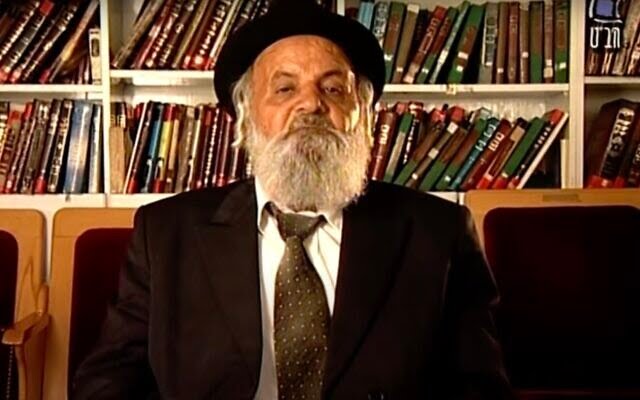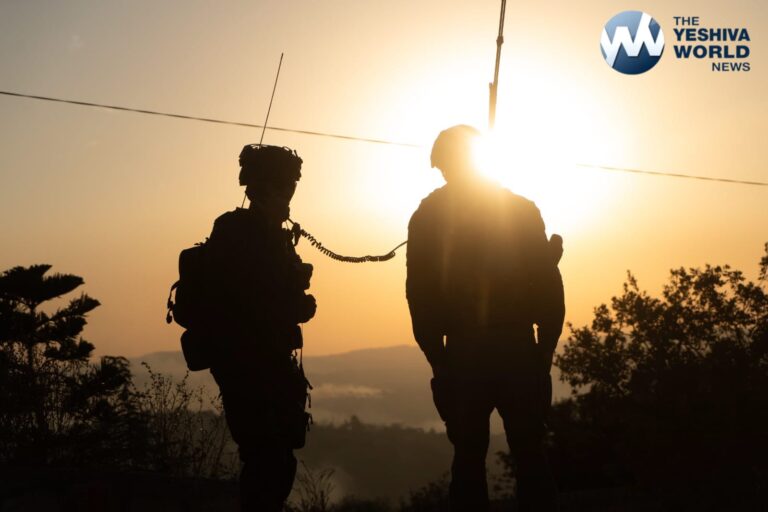 Dear YW Editor,
Dear YW Editor,
Although I have been tempted to write many times in the past, this is the first time that I was so moved as to actually do so.
Especially in light of the main topic and discussion just a week ago at the Agudah convention, being Mekarev our brothers through our actions, an incident that happened to me last week illustrated this point better than any speaker.
I was meeting with a not frum business person who labelled himself as Conservative. He apparently has had almost zero interaction with frum Jews on a religious level (as opposed to in the business setting) until very recently. He was invited to his nephew’s Bar Mitzvah in a small out of town community. While describing the event, he repeated over and over to me that the one thing that stood out from the entire service was the constant talking throughout the davening. Yes, he noticed the Mechitza, the fact that the Bima was in the middle etc. but the incessant shmoozing from beginning to end was what remained in his mind as the symbol of an Orthodox prayer service.
How truly sad. Imagine what kind of first impression he could have had from a moving, inspirational tefillah, as is befitting every davening, not just on Rosh Hashanah and Yom Kippur. Yet, I was left on the defensive, trying to explain that what he witnessed was not indicative of the majority of Orthodox shuls. A first impression, however, is hard to undo and who knows if there will ever again be the opportunity for him to be inspired by Torah true Judaism.
I think the lesson from this is more than that we shouldn’t talk during davening, as B’H this is not a problem in many Kehillos, but rather the realization that nobody lives in a vacuum. One never knows who’s watching (and I’m not referring to Heaven) and what kind of Kiddush Hashem or, Chas V’Shalom, Chillul Hashem one is making at any given moment. Had the people in that shul realized that their actions that day would have a profound impact on someone’s life I am sure that they would have acted differently, and we must conduct our daily lives with just such an outlook.
I hope that this letter can cause that an actual good to come from this story, and may we be zoiche to be Mekadesh Shem Shamayim always Ad Biyas Goel Tzedek B’V.
‘Embarrassed to be Frum’ (USA).
Note From Yeshivaworld: Have something on your mind? Put it in writing and possibly have it posted on Yeshivaworld. Simply contact Yeshivaworld with your story. There is no guarantee that it will be posted – and anything submitted is subject to be edited by the editor.











50 Responses
To,‘Embarrassed to be Frum’: You have a valid point. But why don’t you look on the bright side of things?? Why only negativity? The person you met with, does he have an organization in his community as active as Chai Lifeline, RCCS, and Mekimi?? Does he have a Beth Medrash Govoah with 5000 people learning Torah Lishma? Or Mir Yerushlayim?? A Tomchei Shabbos?? A Misaskim? Rabbanim who care about the klal? Kashrus organizations? A Bonei Olam? A Bikur Cholim? A Hachnasas Kallah? The frum community has so much good. Yes, there are some negative aspects that should be focused on, but as a whole, G-d is happier with the frum community.
To Idealist: We don’t need to focus on what is good; It’s already good!
We need to focus on what needs improvement, even if the truth may hurt.
Lets be Oyhev Tochacha, where ever it may come from!
Dear Idealist,
youre response misses the point. the discussion is not an overall judgement of our community or the value of our deeds as a whole. ETBF is discussing one issue and you should focus on it.
If a perosn who does great chesed commits armed robbery, should we decide his fate solely for his good deeds ?
The shabbos davening in many shuls is nothing more than a social function. It has gotten out of hand and it should be addressed.
I’ve been to shuls where they have 2 minyanim. one in the shul and one in the hallway. Needless to say there isnt much davening in the hall. Sadly, the socializing continues in the main shul too.
We should look and follow the way the Sfardim (our SY brothers) daven. The respect they show for the shul and the way they daven should be something we should all learn to follow. Walk in and watch. ( no, im not a sfardi). See how not a sound is heard, the davening is beautiful, and no socializing.
My comments refer only to davening.
ETBF – dont be.
just spread the word, thats all you can do.
Our community is wonderful. We all need to be reminded about the MiShebairach of the Tofsos Yom Tov in regard to the benefits of KEEPING QUIET in shul. (Read the recent Praying with Fire.)
Idealist, even though you are correct that there are many positive things to focus on in the Frum community, that should never stop us from giving proper attention to our communal deficiencies.
And talking during Davening is certainly a communal deficiency that deserves our attention.
Any business-person will tell you that while attending an important meeting, if two of the attendees began a private discussion with each other, especially if it is loud enough to disturb others in attendance, that it would be – at the very least – completely unprofessional and discourteous, and at worst – outright rude and disrespectful to the others who are trying to concentrate on the meeting.
Why do many of those in the Frum community treat our daily “meeting with Hashem” with less deference than they treat their daily business meetings? Why do we tolerate such disrespect and rude behavior?
Each person in Shul is meeting with Hashem. We meet one-on-one, AND as a Klall. When “attendees” at this “meeting” converse privately with others while the meeting is going on, it not only is discourteous, but rude and disrespectful to the others in attendance – including Hashem Himself.
Kudos to the author of this article for bringing a very unpopular topic to the fore.
The only point of disagreement I have with the author is his pen-name. I would never be “embarassed to be Frum.” I would have signed off, “Let’s work on ourselves.”
And what do you think goes on in his temple? Please, do me a favor. I am not
defending talking in shul, chas veshalom, but there is no way to compare our
davening to what goes on in a temple during their phony prayer service which
is all pomp and nothing real.
He would not have become frum anyway. The reason not to talk by davening is not because there may be some fryeh guy there. The reason not to talk by davening is because it is assur al pi din and because it is a bizayon. We have to do what we have to do because we have to it, not because someone is watching. We have to live by the shulchan aruch even if we are all alone on a desert island. Our life should evolve around Torah and halacha and, if anything, our problem is that it doesn’t.
2 points
1. I vaguely recall a story that a Sephardic leader was asked why the Shoah did not reach Sephardic countries, and his answer was because Sephardim don’t talk in Shul. (Does anyone know who said this?)
2. Some people don’t actually KNOW everything they are saying. It’s extremely hard to have kavannah/ be quiet when you are mumbling words that you really don’t know, but do it by rote.
Some shuls have made a terrific investment & have purchased siddurim with translations (such as Artscroll’s Heb/Eng siddur. With their Inter-linear siddur you can see word for word what you are saying. Suddenly, saying a kapitel Tehillim bears alot more weight! Singing Maoz Tzur has a lot more zest!
I hope the writer was correct when he said that “what he witnessed was not indicative of the majority of Orthodox shuls”.
I have a feeling that most non Orthodox men talk less during the services because they are seated next to their wives.
to “idealist” you ask y focus on the neagativity?
How is this for an answer- because obviously hashem also focuses on the negativity as is evidenced by the numerous tragedies to befall us. so when we decide to look at the good we do as a way to ignore the things that need to be worked on it is not a positive
jj- who are you to judge whats legitimate and whats phony ?
dont defend talking by knocking someone else. Its not the issue whose davening is real and whose is “phony”.
When a tzibbur with payos talks during davening, those tefillos are truly phony.
I would rather daven with a “respectable” conservative davening than a disrespectful “frum” davening or maybe i should just stay at home.
I recall being at a wedding where a Rav got up to make a speech. During the Drosho he was disrupted by the voices of the guests apparantly talking amongst themeselves. Before he continued he said the following;
‘Ladies and gentlemen, please, we are not in shul now, kindly refrain from chattering!’
Unfortunatley he hit the target!
o Midwesterner: I have a feeling that they talk more because they seated next to their friend’s wives!
talking is a very serious problem for those shuls where it occurs.i would encourage the gabboim to make a very special effort to end this behaviour during the davening and krias hatorah.frquently, however, they find their efforts backfire when they are screamed at by the talkers to stop disturbing them so obtusely.i dont reccomend the rabbonim to get involved directly.its very embarrising and dificult for them.i would reccomend that if a shul has toomany talkers,leave that shul and make every effort to start a new bais hatefillah,at any cost.it might provoke the talking shul to be be more aware of their talking situation and try to stop it .
I was raised in a Conservative (albeit traditional, for that) shul, and I can tell you that at least 20 years ago they didn’t talk much. This is because it was frankly much closer to l’havdil a church service, Hashem yerachem.
There’s not a lot of talking in my shul either, but I have definitely davened in shuls where a little sprinkled conversation can happen sometimes. If it’s not between Baruch She’amar and Tachanun, is it such a big deal? Do people really carry on full conversations like this? I’ve never seen such a thing. Does anyone speak in any shul between Barchu and Shmoneh Esreh? I can’t imagine.
Maybe this is something I just haven’t witnessed because I haven’t been frum long enough to see it, but I just have a hard time imagining this kind of thing actually happening in a shul full of Torah-observant Yidn.
JJ- I just read your second comment – of course you need to concerned about who is watching.
If the halachas of davening itself doesnt motivate you to be quiet, then you would hope that others around you might jar your memory.
Davenning for us is Shmoneh Esrei and Birkos Krias Shma. Nobody (except for a few lowlifes) talks then. Everything else is just preparation for davenning.
Furthermore– our whole lives are defined by the prohibitions and mitzvos that pervade everything we do. The distinction between the shul and the home and the business place is not as immediate or obvious to us as it is to people who, when outside of shul, are indistinguishable from their non-jewish colleagues.
So there’s no need for apologetics.
The only issue is our failure to conform to our dinim of k’vod beis haknesses. Forget about the ignorant natterings of those that don’t understand these basic facts.
First of all thank you do YW for bringing up this very important issue. Looking at the previous comments, at seems that our inner defense mechanisms have kicked in and there is a tendency to try to defend ourselves against a negative comparison to non orthodox “services”. I think we first and foremost have to all agree that talking during davening is assur al pi halacha and unacceptable.
Now I will put up some sort of a defense, for one reason only. The letter writer signed himself as “Embarrassed to be Frum”. That I take issue with. While talking in unacceptable, the comparison to non orthodox “services” is unfair and incomparable. How can you compare people’s behavior in shul, when they spend 2 hours or more each day (between Shacharis, Mincha, Maariv and possibly a Shiur) in shul and naturally feel more comfortable and “at home” in shul, to people who spend at most 2 hours a WEEK in some stuffy empty service? And that is if they go every week! Most non orthodox go several times a year at best.
Again, I am not defending talking during davening, but it is also wrong to feel embarrassed by an unfair comparison.
Chilul Hashem is much more serious than hilchos tefila.Chilul Hashem is a D’oraisa and is not miscaper until death, while Dovening is D’rabanin.So surely who’s watching is the biggest mechayav.
Leizer- i dont understand your argument. where are you getting your info from ?
Leizer, I’m not sure what your source is for, “Davenning for us is Shmoneh Esrei and Birkos Krias Shma.” The Halachos of talking during Davening cover a much wider range than you allow for. Since when is Pesukei D’Zimra a Hechsher Mitzvah (“preparation for davening”)?! Where did you come up with such ridiculous statements?
Secondly, you seem to make this issue into a completely Bein Adam L’Makom issue, “failure to conform to our dinim of k’vod beis haknesses.”
I disagree.
This issue is equally a failure, as you say, to conform to k’vod beis Haknesses, BUT ALSO, and no less important, it is a failure in Bein Adam L’Chaveiro.
memories of an old MBC song… “The shul is packed with people who have come to pray, but unfirtunately some have lots to say, the Rav bangs on the bima and he asks for silence, this (talking in shul) is wrong, we must be strong…. WE NEED YOU WE NEED YOUR TEFILOS EACH AND EVERY YID CAN BRING THE GEULA, DONT TALK, SH SH, JUST DAVEN SO YOUR TEFILOS CAN REACH HASHEM! You’ve got to know the halacha that it’s asur ledaber bishas hatefila….”
Says it nice and clear! It’s not a social gathering!
I recall learning that communities are necharev and destroyed because of talking in shul. Also I’ve heard (dont know mikor) that it’s better to daven at home then to daven in a tzibbur where there is idle chatter (especially b/c Lashon hara is almost always part of it) it may even be the chofetz chaim’s words… dont remember!
I always smile at ppl who start to talk to me in shul and I point to the siddur to show I cant talk. Sometimes you can try to shush ppl but they just get upset. Honestly such ppl dont belong in shul! Why in heavens do our tefilos have to be disturbed with talk about the latest in Israel or where you bought your daughters dress on sale or your trip to Honolulu!!
I really think ppl dont even realize that they are talking out of place! Just remember, if you want yeshuos among your kehilla work on not talking in shuls with mundane things especially at points that is asur!
By the way- talking during chazaras hashatz and krias hatorah is outrageous! Between aliyos- shouldnt be done either- please women- do be aware of this, as well as men.
I think that as a whole, less traditional people will talk less in temple or shul, because to them it’s “prayer time”. It’s not something they do everyday and therefore they recognize and feel the solemnity of prayer, of relating to The Creator.
On the other hand, we daven 3 times a day. For many of us it’s how we were raised, and unfortunately it becomes routine and part of daily life. We take it for granted.
It’s similar to the lifelong Israeli at the Kosel. When visitors from the US show up, they are usually overcome with emotion, but to someone who’s there 3 times a week, it becomes routine and part of life (obviously a generalization, but you get the point).
Shmoneh Esrei is called Tefillah. That means davenning. Then, there is birkos krias shma, which is basically no different from any brachos that are associated with doing mitzvos, whether or not it’s technically ‘birkas hamitzvos’. Psukei d’zimra are preparatory for tefilla, our version of what the chasidim harishonim who used to prepare before davenning did.
So we need to remember what is davenning, i.e., at what point we see ourselves as if we are standing before God, and other stuff. Feel free to correct me if I’m wrong, but it’s only Shmoneh Esrei where we are told that we should see ourselves as if we stand in the presence of God.
R’ Mattisyahu Solomon, shlita, once pointed out that the one time the Shulchan Aruch uses the expression “gadol avono mi-neso” (his sin is too great to bear) is regarding talking during davening. The Mishna Berura brings the Eliyahu Rabba who says that “we have seen a number of shuls destroyed because of this sin.” I’ve been told by an adam gadol that of the twelve shuls in Antwerp before the war, eleven were completely destroyed and the twelfth was left totally intact (when the gabbai came back after the war he found it exactly as he had locked it up the last time), and the gedolim of the time pointed out that this was the “Yekke” shul, where they didn’t tolerate talking during davening. If you’ll say it can’t happen here, people said that in Germany too. You can’t be too careful.
here’s a few poshite eitsas [many or all of u will agree to the following but how many will make it happen lemaase?]
1.we need constant reminders [by our rabbanim]
about
a. the halachos of shmuzing in shul in gnrl & during davening in particular.
b. the hashkafos of davening [u’r wife & seminary daughter probably can teach you a thing or 2 on this sub.] (i’m a male). eg. to better appreciate YOUR tefilos.
c. read the book Praying with Fire everyday,preferbly bichavrusa with the guy who sits next to u in shul.[dont be embarrased to offer, he’ll respect u for it]
d.in this new age of vaads(!!) maybe each shul should have a vaad haTefilla, to enforce the halachos!
e.[many people are not in contact with each other during the week so have a strong desire to speak on shabbos in shul so ] let’s make a designated time for shmuzing eg. hafsaka bet.davening & kriyas hatorah
#12 (cheski): Yes, you should definitely sooner stay at home!
Alter Bachur, so by following this analogy, a less traditional Jew will be more machmir lkashrus during a holiday, say, than a frum Yid, because it’s a special time? Maybe it will seem so because they so much as think of it, but would you say, “nu, it’s Shavuos, what’s a little bacon?” Chas v’shalom, of course you wouldn’t! Why is it any different in davening? The halacha is clear about when nobody should be talking, which is most of the service. I don’t understand why any would go against it.
I find that the main schmoozers in the shul I attend most often and have been since childhood,are the administrators of various schools and shul committees. Lately,it’s the young men who learn in a very respected out- of- town yeshiva when they come to visit their families.(many are married now)Some are the B’nei Torah who think that a refutation of a sevoro in gemoro is more important than the davening service. What kind of role models are they? Why is it OK to talk during Kaddish,ANY Kaddish? During Chazoras HaShatZ/ At least go outside if it is urgent. But why disturb the dignity of the Tefillo or Kri’as haTorah? These are the same people who don’t want to be interrupted when on a phone during a call. The same ones who cannot greet you when they meet you on the street or in a store.,even when you greet them first! I am speaking from a lot of experience and am upset about this. This is sin’as chinom,lack of ahavas habriyos,and lack of ‘ nosey ol im chaveiro’. It is ‘gaavah’! and these people are not even ashamed to be arrogant in front of Hakodosh B.H. even in His house. So we get more Tzoros and they don’t relate the problems with the wrong behaviour. Hopefully the behavior will improve and the sad tzorros we are experiencing will diminish and Hashem will treat us with more rachamim.
A well known rav (in today’s time) was asked to be misader kidushin at a wedding in a shul and he said he is never misader kidushin in shuls because people might come to talk divarim bitaylim in shul! (And this is not during tefillah!)
Recently,I had to daven somewhere else for a few weeks and the shul was a place attended by Kolol people and many with long beards,payos and stremels. There were a number of those who were dressed in reular business-type suits and ties,and were family men and workers. Guess which ones davened and which ones schmoozed? The peyos-wearing men,talking and joking in Yiddish outdid the English-speaking regular-frum men,who were mostly quiet. Their children,bar-mitzvah age and older were outside a large part of the time while the young boys from the non-chassidish were standing next to their fathers and participating in the tefillo without talking. When people who consider themselves frum start behaving better,the geula will come faster.
its true, we should not talk in shul.but if that person would really want to become frum, he would see the good.in the conservitive shuls the reason why they dont talk during services its because they are all sitting next to thier wifes so they have nothig to say.
Mom18 – It was the Baba Sali
U Should be PROUD to be FRUM. Not embarrassed. By all means those who shmooze should be embarrassed of their actions. (Not of being Frum.) Thanks!
In the famous words of the Chofetz Chaim ZT”L… How do you know that talking during davening is the yetzer hora? He answered, that as soon as davening is over people go their own way. The Shelah Hakodoshs’ father was mayid that whole communities in Europe were destroyed only because of the avairah of talking in shul
Maybe next years convention theme can be “Convention at Risk:Bringing the Convention Back From The Cliffs Edge: How to stop talking during davening AT the convention”
you call yourself embarrased? from one tiny tiny incident you are embarrased to be frum!? iam slightly embarrased at this but i am very very proud to be frum when every single day i hear stories that happen that will only happen by truly frum people! to hear that two hours after a yungerman is niftar there are ten people already on the phone working on helping the almonoh,thats what to be proud off and the list is endlesss……………….
Interesting. This past Shabbos, my Rav quoted the Tzlach, who says that Channukah is the time for considering why the Shechina is not sheruya in Klal Yisroel, and ways to welcome it back. One of the reasons for the former is talking in Shul: since a Shul is a Mikdash Me’at, ant the potential home for the Shechinah, when people talk in Shul, the Shechinah leaves home.
Hashem Yerachem.
As the writer of this letter, I am very happy to see that much constructive commenting is going on. I have much charata, however, over the name that I chose to sign under it. Unlike the letter, I put very little thought into the name and was referring to this specific incident, not my general outlook on frum yidden. I didn’t realize that it would detract from the general discussion.
Now that that’s out of the way, everybody can stop hocking about it and keep the focus on the point of the letter.
talking in shul is a HUGE issue- im glad that it was brought up. there’s talking in my shul, and i sometimes shush the men who are talking- as a woman, is that an issue? i want to daven also?!
The Halacha clearly states that its Assur to speak during davenning and Krias Hatorah. Why are will agruing? And it is disscusting to witness Bnei Torah tlking/schmoozing in shul. Regardless if its during the week, Shabbos or Yom Kippur. know I’m repeating some of the previous posted comments, but it is litterly a matter of life and death. Its unfurtonate that the person that sent this letter to YW needed a wake up call.
The problem is also that the Rabbonim are afraid to open their mouths to quiet/shush people (either because they might offend someone or loose a big donor – or even both). The truth is,there is no simple solution to resolve this issue. Everyone must take upon themselves to be their own Shusher. Having someone designated in the Shul to Shush people doesn’t help.
However, I was once davening in a shul in Los Angeles, CA and there were people talking during daveing, what I saw was very interesting, the Rov of the Shul approached the Baal Tifella and stood next to him, and motioned him to wait, the Shul got quiet and it took about 45 seconds until the Shmoozers realized what was happening, and they stopped out of embarsment, and the davenning coninued without further talking.
Bottom line: we should all be Zoche that our Tiffillos should be accepted and we should all be our own Guards and keep our mouths shut during davening and Laining – like the YW editor put it: DON’T TALK, JUST DAVEN!”
I daven mincha in the Wall St Synagogue and it is frequented by judges and lawyers who work in the courts downtown. one day a lawyer friend of mind walked in late for mincha. After davenning an elderly distinguished gentleman,, who I later found out was a judge, walked up to the lawyer and told him the following. In my court you wouldn’t dare come late in this court of courts you have the nerve to come late. the message came through loud and clear.
Proud KAJ-WH TIDE Guy
While talking during davening is wrong, pointing fingers at certain sects or group of people is most definitely wrong.
Every barrel has rotten apples, just as it is naive to confuse jews with judiasm, it is equally naive to stereotype an entire group based on the actions of a few individuals
Amen to your bracha JMO (46).
I remember one summer in a bungalaow colony I was so frustrated every week cuz I did the Shul Hop from one place to the next and I couldnt hear the shatz and I finally got so frustrated and left. One week i finally ended up at Yeshiva of South Fallsburg and I was so impressed and moved by the kavod hatefilla and kavod of the shul there… and it warmed my heart… Ah! Some yidden know how to daven! If only that man could have been there he would have become frum!
Let’s be the ones to proudly bring kavod hamakom to our shuls and yeshivas… hang nice signs in the halls (and if you can in the shul) reminding people of the schar for not talking in shul and warning of the oinesh if not kept. Lets spread awareness and lets make a kiddush Hsahem to make the Yishmaelim quake at our reverence of tefilla and shuls.
to 14.(torahis1) &the rest of u who peak in the name of G-D
u should read pg.282 in the book Praying with fire – the story with r’chaim kanyevsky where r’chaim was asked to daven for a good friend of mine in shul, r’ chaim asked “do THEY TALK IN SHUL??….the talking must stop COMPLETELY tell {ur FRIENDS }they should be mekabel bl”n not to speak at all d.davening & IN THAT ZCHUS UR FRIEND WILL HAVE A REFUA SHILAIMAH.”
Wearing a sheital,eating cholov yisroel,learnig,not watching TV,not using internet,are all important. BUT-if one keeps the mitzvohs plus the chumros, the talking during davening cancels out evertyhing. If your appliances are all not working,and you send the repairman to fix them and they are all found to be 100 % OK,but they still don’t work,perhaps the fuse is blown or the circuit-breaker is off. The davening properly in and out of shul is the fuse. The talking is the short circuit.
I only bring not-yet religious guests and coworkers to shules that are quiet in my town, which are the yeshivish minionim whose people all have 1-2 sederim. I go all out to daven there on shabbos because that’s where I want to be known as hanging my hat – even though I get much more kavid,business, and “fun” in the balabatish places. I want to send a strong message to myself and to my children and maybe to future in-laws of what I stand for.
I encourage some small kiddush to at least get some “coming together” so people don’t continue not socializing at all after.
Over many years, I unfortunately have to agree with the out-of-control taking by visiting guest, regardless of their dress, or rabbi up at th bima or any sort of control.It takes strong gabbaim who will forego mishaberah contributions to maintain tight order.
the halacha is clear – no talking in shule. i did see a nice response once in defense of the ‘leibadikeit’ of frum people – that is just it! they are leibidig, alive, and that is why they aren’t so quiet. of course it is something the shmoozers have to work on. to stay leibidig at the right time, not when it is time to daven or learn. i saw a shmiras haloshon tip – it is kdai to pick even just a few minutes a day to not talk at all. let’s aim dto not speak at all unless there is a positive purpose to what we have to say. altogether, most of us need to follow the advice of the iggeress haramban and think before we speak.
It’s not how frum you look or dress or sound that makes you frum.The proper doing of mitzvos and tefillo without schmoozing is definitely more important. When people dress or speak a certain way,they represent themselves to be what they’re not if publicly (even privately)they don’t act accordingly. Halocho and mussar have not gone out of style as far as I know.There is no excuse for chillul Hashem ,even if no goyim are around.